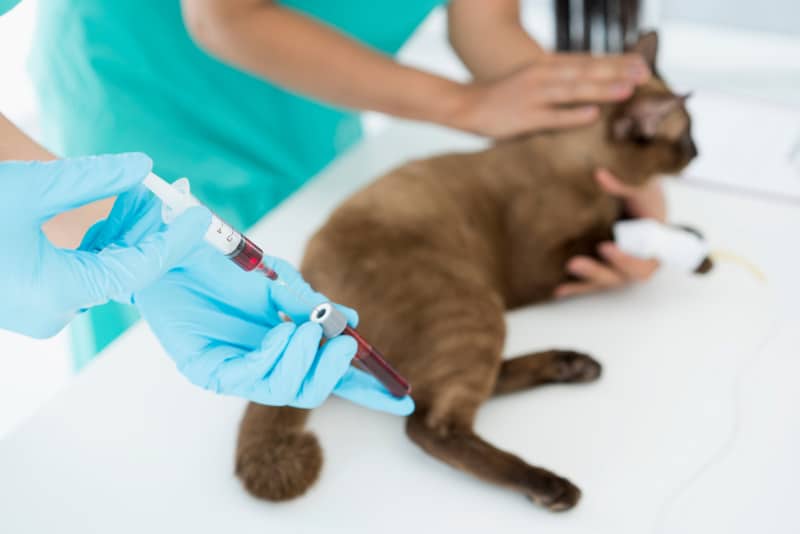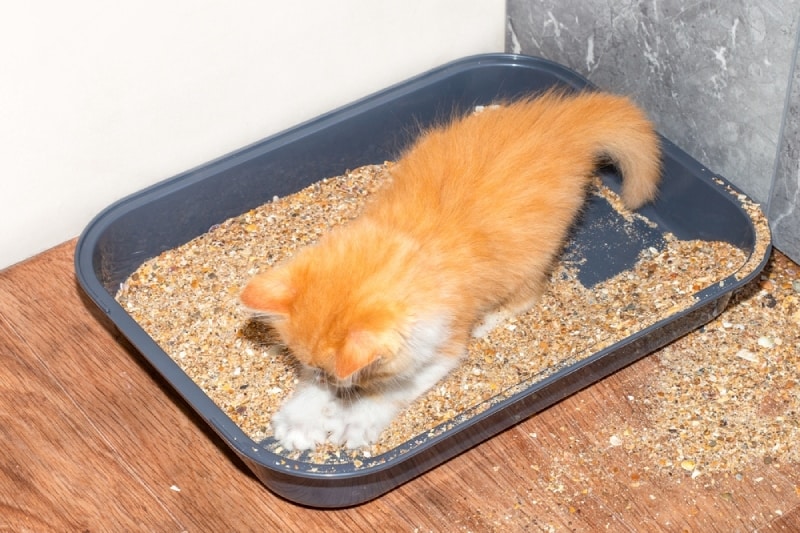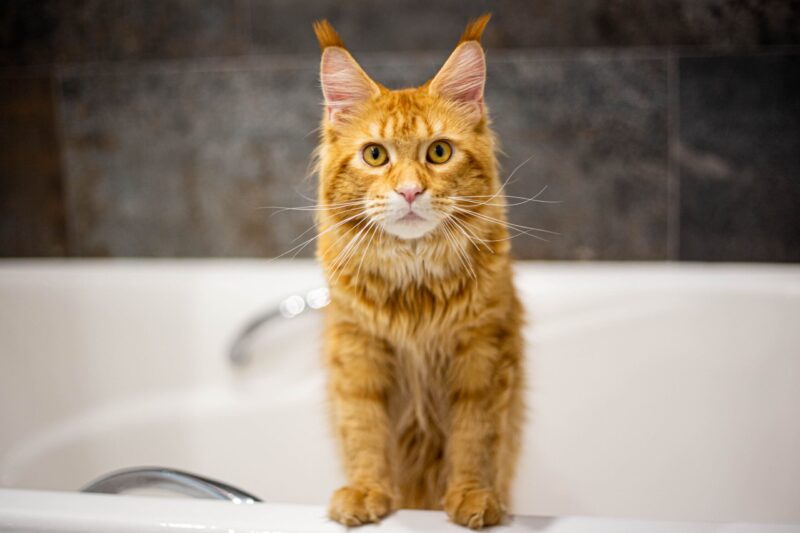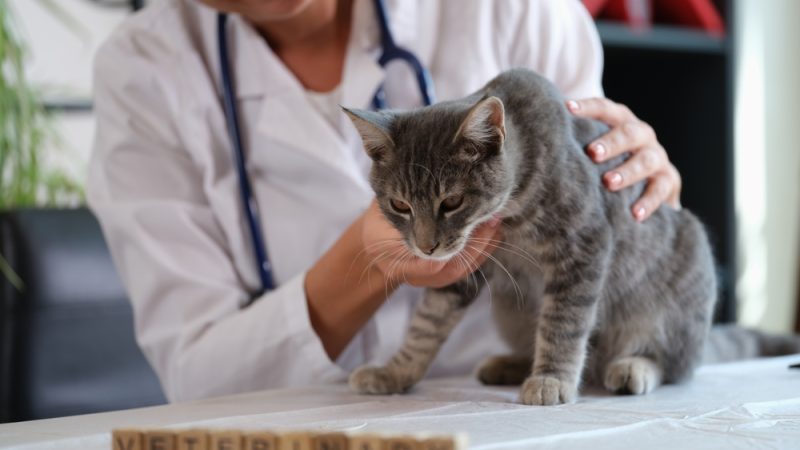In this article
View 2 More +Cats can experience a wide range of emotions, anger included. Although they might not experience anger the same way we do, there’s no doubt that felines can get angry from time to time. Anger is not an ideal experience for cats, so it is important to find out why they are angry so that you can calm them down effectively.
Let’s discuss the seven steps and tips you can take to calm down an angry cat.

How to Calm an Angry Cat in 7 Steps
1. Give Them Space
An angry cat is likely going to need some space to cool down, perhaps a few minutes to even an hour. It is not a good idea to try to immediately pick up your cat or pet them if their body language is showing that they are not comfortable with it. This could stress your cat out even more and could put you at risk of being bitten or scratched.
You also want to avoid cornering an angry cat, as this might make them lash out even more. If the cat is not in immediate harm from their surroundings, let them calm down in the spot they chose to run or hide in.
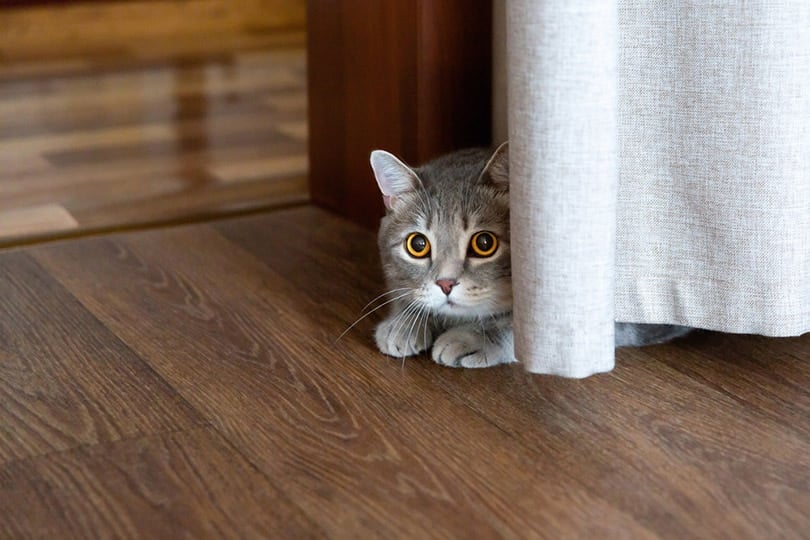
2. Remain Calm
Once you notice that your cat seems angry, you should not aggravate them further. The best way to approach your angry cat is to remain calm. If you approach an angry cat shouting or running, you are probably going to frustrate or scare them more. Only speak to them in a low, gentle voice, and try not to show your panic.
Furthermore, remaining calm and taking a few deep breaths before dealing with them can help you proceed with a clear head.
3. Read Their Body Language
It’s important to take note of your cat’s body language and overall behavior if they are angry. This could help you determine what might have caused them to become angry in the first place. Have you noticed that another pet is chasing them or trying to fight with them? Was there an unfamiliar person or animal near them or perhaps a loud noise?
These are good questions and observations to make so that you can understand your cat’s source of anger better.

4. Remove Any Potential Stressors
If you have determined a stressor that has likely made your cat angry, you should try to remove it if possible. This could be another pet, person, or object in the environment that is making your cat angry. By removing the stressor, you can give your cat the necessary time to start feeling safe again.
They might retain their aggression or angry behavior until they are no longer interacting with the stressor.
5. Keep Your Cat in a Safe Area
An angry cat is probably going to behave frantically and aggressively, so it’s important to keep them in a safe area where they are not a harm to themselves or other people and pets.
If your cat is already in a safe area, such as under a bed or dark corner they chose to hide in, rather leave them and do not try to lure them out. However, if your cat is in an area where they are not safe, such as outdoors or in a busy area of the home, try calmly lure them into their carrier or crate. This might aggravate your cat’s anger in the moment, but it will be necessary to keep them safe.
You can then move them into a quiet, dimly lit room where they can choose their place to hide and calm down. Keep in mind that an angry cat could hurt you as they want to defend themselves, so ensure that you take measures to protect yourself from potential bites and scratches.
The safe area should have a blanket, litterbox, box, or open carrier they can hide in, and a food and water bowl. It can take a while for an angry feline to calm down, so give them everything they would need for the time being.
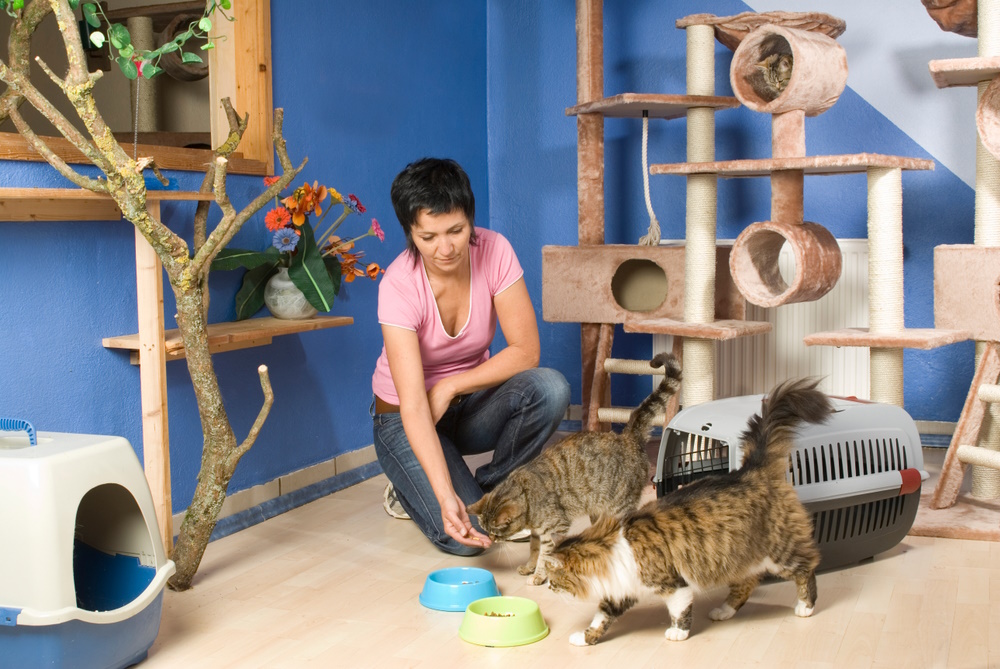
6. Try a Relaxing Distraction
Once your cat has calmed down a bit, you can try offering them distractions that will take their mind off of the situation that made them angry. This could be an enticing treat, food, or their favorite toy. You can also play white noise or calming music in the background at a low volume.
If your cat is showing signs of anxiety or stress after their angry outburst, you could look into calming medications after consulting with a veterinarian.
If you need to speak with a vet but can't get to one, head over to PangoVet. It's an online service where you can talk to a vet online and get the advice you need for your pet — all at an affordable price!

7. Seek Professional Help If Necessary
There are some situations where an angry cat cannot be helped at home and requires professional help. Sudden behavior changes in cats should not be ignored, so there is no harm in seeking advice from a professional.
Cats act strangely after an angry outburst or keep repeating the behavior might have underlying medical or hormonal issues that you cannot deal with yourself. Cats who are feeling angry because of pain might only feel relief once a veterinarian prescribes them appropriate pain medication.


How Can You Tell If Your Cat Is Angry?
Anger in cats is often intertwined with other emotions such as stress, pain, irritation, and anxiety. This is similar to some other animals and humans too. An angry cat is going to show clear signs through their body language and vocalizations. Signs of an angry cat often manifest as aggression.
Often, their fur will be slightly raised, their ears back, teeth bared, and they will be hissing. However, in some cases, it may be far more subtle. Some angry cats have a distinctive arched back and puffy, swishing tail. This angry body language and vocalizations are your cat’s way of expressing that they are feeling negative emotions and want to be left alone.
Most angry cats will have a short tolerance for interaction, so they might swat away well-meaning hands or refuse to be picked up. Your usual loving feline may end up scratching or biting you, although it is usually not a personal attack but rather a way of defending themselves.

What Makes Cats Feel Angry?
- Overstimulation: Intense feelings of being overwhelmed could make a cat feel overstimulated in certain situations or towards other people or pets.
- Other pets: If your cat has not been socialized properly with other social animals, this can bring up negative emotions that could eventually lead to frustration and anger. However, even a well-socialized cat will not always get along with other pets in the home.
- Environmental stressors: Loud noises, bright lights, unfamiliar smells, and changes in their environment could cause a cat to appear angry. Cats do not handle change well, and it is normal for them to become stressed or angered over things in their environment they are not happy with.
- Pain: If your cat is in pain whether it is from an underlying health condition or a recent injury, they might react in a way that seems “angry”, when they are actually in pain.
- Hormones: Sometimes a cat’s fluctuating hormones could be responsible for their angry or aggressive behaviors.
- Redirected aggression: Some cats do not always know how to deal with overwhelming emotions well. They might become aggravated over stimuli in their environment that they cannot directly interact with, so they might redirect their emotions toward something else.
- Traumatic experiences: If your cat has trauma, reexperiencing the events that led to their trauma could make them angry, anxious, and stressed. This could be from specific smells, sounds, people, or animals.


Conclusion
It is not healthy for cats to experience heightened emotions like anger, nor is it easy to deal with an angry cat. It is best to approach the situation calmly and give your cat a safe area to cool off themselves.
If you have identified the stressor that caused them to become angry in the first place, it should be removed from the same area as your cat. Always respect an angry cat’s boundaries and monitor their body language so that you know whether it is okay to handle them or not. A tasty treat or interactive toy is usually enough to distract an angry cat that has been given the necessary space to cool off.
See Also:
- Do Cats Hold Grudges? Feline Behavior Explained
- How to Calm a Crazy Cat: 6 Vet-Approved Tips & Causes of Extra Energy
Featured Image Credit: AnnaKraynova, Shutterstock


